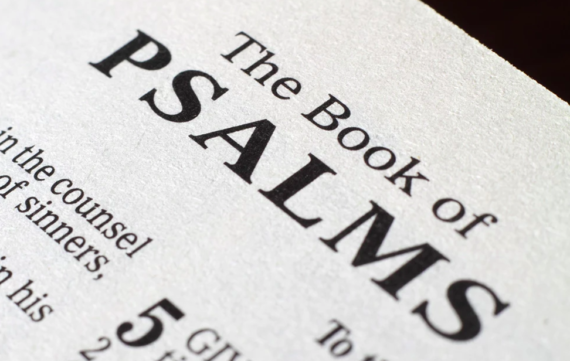In a way there is not much to say about this psalm. Further information about the terms and expression, the possible historical contexts and the alternate translations will not be very enlightening. The psalm is what it is, an expression of disappointment. But, although the standard means of studying a passage yield little when applied here, there is an important point being made by this psalm.
The people are disappointed, they feel rejected, yet they have not given up their faith in God.
There are plenty of examples of such faith in other parts of scripture. It is not uncommon to find an example of someone disappointed yet faithful. Abraham, Joseph, Moses, Elijah, Job, and Jeremiah all expressed disappointment at times. One of the clearest examples of not getting what one wanted, comes from the New Testament. Paul was a sometimes-disappointed servant of God. The apostle experienced disappointment, he describes himself as “afflicted, perplexed, persecuted, and struck down.” Yet he is not “crushed, driven to despair, forsaken, or destroyed” (2 Cor 4:8-9).






Psalm 60 expresses considerable disappointment, yet it is a psalm of faith.
God is active
Some seem to feel that we should attribute the pleasant things that happen to God, and all the unpleasant things to Satan. But that is not the case in this psalm. As this writer sees it, it is God himself who has brought on their difficulties.
O God, you have rejected us, broken our defences; you have been angry; oh, restore us. 2 You have made the land to quake; you have torn it open; repair its breaches, for it totters. 3 You have made your people see hard things; you have given us wine to drink that made us stagger” (1-3).
Yet he is active not only in bringing on, or at least allowing, their difficulties. God also provides a rallying point to which they should flee.
“You have set up a banner for those who fear you, that they may flee to it from the bow. 5That your beloved ones may be delivered, give salvation by your right hand and answer us!” (4-5)
Ultimately God intends to deliver his people and defeat their enemies. He says,
“With exultation I will divide up Shechem and portion out the Vale of Succoth.
7 Gilead is mine; Manasseh is mine; Ephraim is my helmet; Judah is my sceptre.
8 Moab is my washbasin; upon Edom I cast my shoe; over Philistia I shout in triumph” (6-8).
Not yet
But this is not happening yet. For now, the writer feels rejected by God. He feels that God is not delivering them.
“Who will bring me to the fortified city? Who will lead me to Edom?
10 Have you not rejected us, O God? You do not go forth, O God, with our armies” (10).
But while the writer does not currently feel that God is with them in their battles, he is confident of ultimate deliverance coming from God.
“Oh, grant us help against the foe, for vain is the salvation of man! 12 With God we shall do valiantly; it is he who will tread down our foes” (11-12).
When we feel perplexed or disappointed, let us not condemn ourselves for feeling so. Yes, as Martyn Lloyd-Jones pointed out, the idea of a miserable, discouraged Christian seems like a contradiction in terms. But we meet with plenty of discouraged believers in the pages of scripture. They were saved by God’s grace, and we can be too.
We may be at times discouraged. When we are, Satan will suggest that we ought to give up, that our faith must not be real. But many of God’s servants have been perplexed or disappointed. One or two have even cried out “Why have you forsaken me?”
Disappointed or perplexed we may be, but crushed, forsaken, or destroyed we will not be, if we hold fast to our Lord. “With God we shall do valiantly; it is he who will tread down our foes.”

